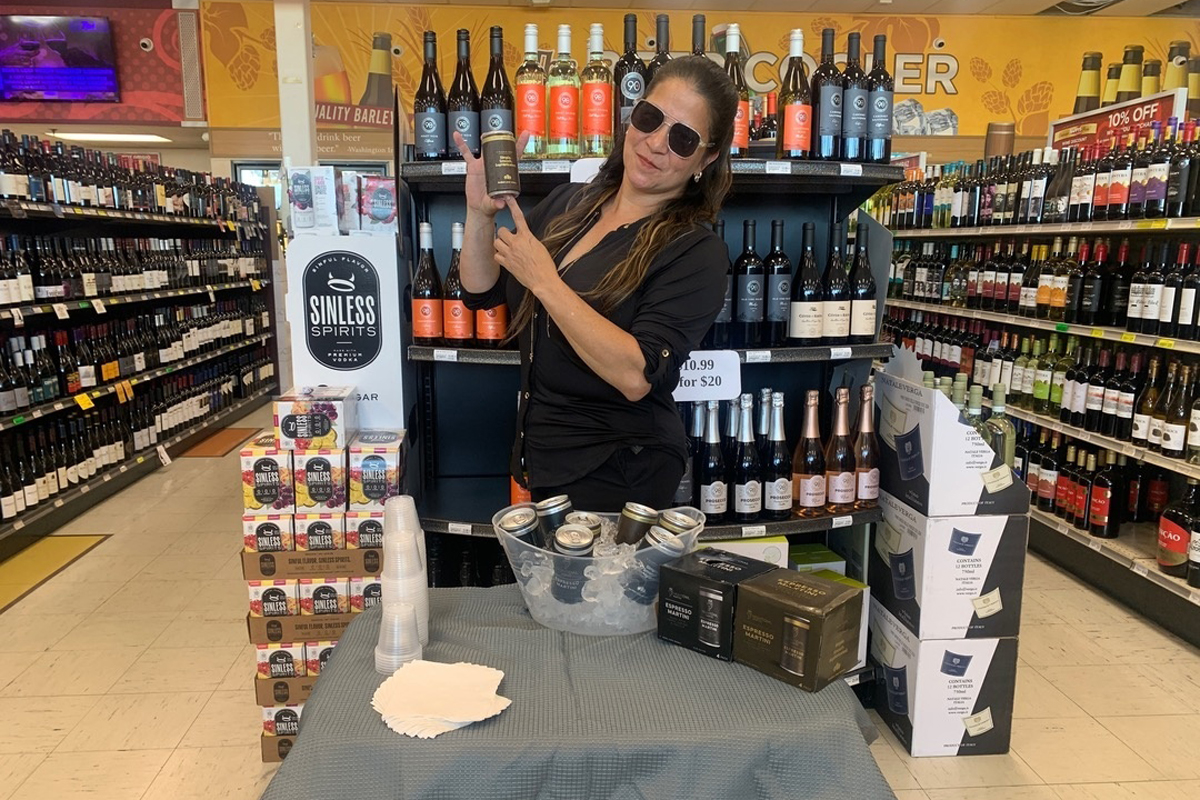They say “You need to spend money to make money,” but you don’t need to spend a lot on your promotional events to produce great results.
The costs of running a promotional program can quickly overwhelm a brand’s budget, even for the largest of companies. Vendor sponsorship costs, staffing and product consumption are just the start… you need to also take into account shipping logistics, promotional products and many other factors when budgeting for your program. The common misconception is that you need to spend big money to attract new customers and clients; however, with a little forethought you can cut back your costs significantly and still provide an amazing experience for your target audience.
1. Hire Booth Staff for Promotional Events Hiring promotional staff to assist at your trade show, beer sampling or other event of any substantial traveling distance will save you thousands of dollars on hotels, airfare, meals, overtime and the opportunity cost lost by having your sales team work a trade show or special event. For a low hourly rate, you can find experienced talent who can quickly learn the basics of your brand to educate consumers, drive sales and qualify prospects.
2. Provide Fun, Relevant Promotional Items Many individuals incorrectly believe that they “need” to throw their brand name on “something” at their table, whether it be pens, bag clips or any of the thousands of promotional items available on the market today. While it’s important to have your brand logo and contact information seen by as many potential leads as possible, unless your promotional items provide value or are a direct tie-in to your product or service (i.e. a bottle opener at a beer convention), you may find more of your promotional items simply wind up in the trash.
3. Set Goals for Your Promotional Agency Hiring a promotional agency will certainly provide value by promoting your brand to consumers, but unless you have targeted goals in mind, your efforts may not yield a significant return on investment. How many units of product should be sold to justify the cost of a sampling shift? How many leads do you need to get at a trade show to generate one qualified prospect? It’s important to set goals with your promotional agency and review results against these goals.
4. Bartering and Partnerships Vendor sponsorships, whether it be at a trade show or a table at a charity event, are usually one of the largest expense items in any promotional budget. Exchanging your product or service for a free or reduced sponsorship, leveraging the power of your social media to the benefit of your event host to help them sell tickets and partnering with another vendor to share booth costs are all great ways to reduce your cash outflow.
5. Don’t Over-train! One of the biggest mistakes many companies make is wanting to spend an extensive amount of time training brand ambassadors about their product or service. Sure, you want a brand ambassador to properly educate the consumer, but training costs time and money and the brand ambassadors may not retain a large amount of information as they could be representing numerous brands during any given week. While a short training call may be valuable, the most important thing you can do is to provide your promotional agency with a one-page sell sheet highlighting the key points about the brand as well as resources for consumers to find out additional information after they engage with the brand ambassador.
6. Let the EXPERIENCE sell the brand! The two most important factors in generating results for your promotional efforts are the consumer’s experience with the brand and the consumer’s interaction with the brand ambassador. Even if other factors such as space, promotional materials and giveaways are excellent, failing to master the consumer interaction won’t create the memorable experience that will result in increased sales and repeat customers.
7. A Big Budget Doesn’t Mean Big Results While having the biggest booth with the most expensive promotional materials may turn a good number of trade show attendee heads, the costs involved in being flashy don’t always produce the greatest results. Sometimes less is more, so be sure to ask, “is this creating a memorable experience and providing value to the consumer?” when planning out what you’re going to invest in for your promotional budget.
8. Define Your Recap Recap, whether it be pictures, a form or simply net units sold during a promotional event, provides valuable information as to how successful your promotional efforts were. Before you start a promotional program, it’s important to set realistic goals and ensure your brand ambassadors capture this information and remit it to the brand’s decision-makers.
9. Test the Waters Just because you can make a big splash at an event or in a market doesn’t mean you necessarily should. Try a small program of six to ten events in different venues over a wide geographical area, then evaluate the results before starting a massive launch in a market or investing tens of thousands for a single trade show sponsorship.
10. Diversification Is Key! While there is a benefit to repetition in a successful promotional program, such as weekly on-premise beverage samplings, diversifying your promotional events will help you reach prospects outside of your standard channels. For instance, on-premise beverage samplings – such as samples of vodka given out at a nightclub – can also be combined with off-premise retail samplings, upscale charity event samplings, craft spirits festivals and other similar tasting events.

